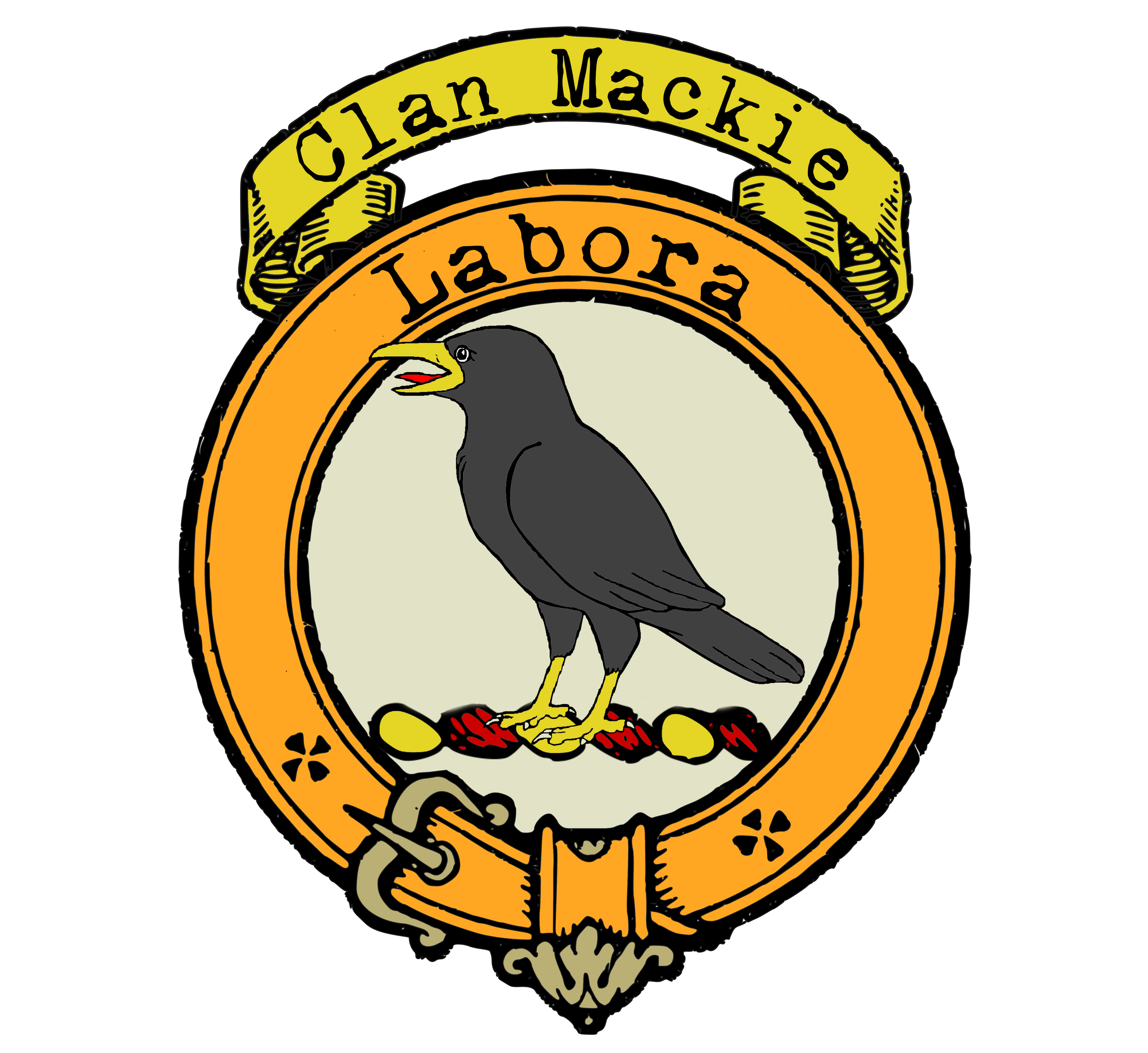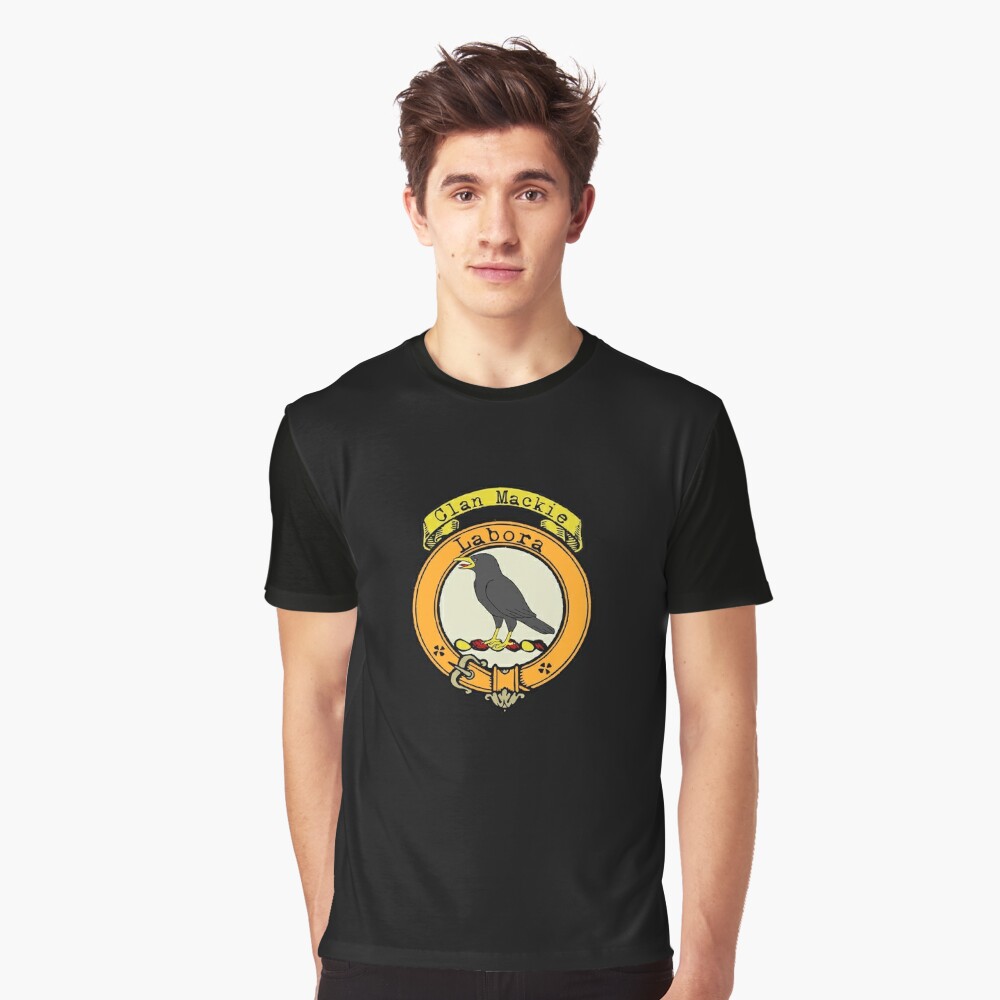Clan Mackie
|
|
CREST: A Raven Proper MOTTO: Labora TRANSLATION: Endeavour VARIATIONS: Mckie |
| The name “Mackie” draws parallels to Clan Mackay, suggesting a shared ancestry. It is believed that the Mackies may be descendants of Aoidh, a member of the royal Celto-Pictish house of Moray. This lineage led them to Galloway and Wigtownshire via Kintyre, where they established themselves as a prominent family.
Legends surrounding Clan Mackie’s origins often revolve around their exceptional martial prowess. One notable tale recounts the story of Mackie of Larg, who accompanied King Robert II. Eager to demonstrate his archery skills, Mackie was challenged by the king to shoot two ravens perched on a distant tree. To the king’s amazement, Mackie successfully pierced both ravens with a single arrow. This extraordinary feat earned him the right to bear a distinct coat of arms—a shield depicting two ravens pierced by an arrow through their neck, accompanied by a lion representing the royal witness to his remarkable skill. Sir Patrick Mackie of Larg, a prominent member of Clan Mackie, played a role in the early seventeenth-century Plantation of Ulster. Although not as enthusiastic as some participants, Sir Patrick was among the original Scottish undertakers involved in the venture. However, his lands near Donegal, totaling around one thousand acres, eventually came under the possession of John, Earl of Annandale. As Clan Mackie prospered, they acquired additional lands that became integral to their heritage. The acquisition of Bargaly in Kirkcudbrightshire and Auchencairn near Castle Douglas marked significant milestones for the family. These territories served as strongholds, solidifying the Mackies’ influence and prosperity in the region. Throughout their history, Clan Mackie has produced remarkable individuals who brought honor to their name. Lieutenant Colonel John Mackie of Bargaly, for instance, distinguished himself with valor during the Boer War, further emphasizing the clan’s enduring spirit and military prowess. |
|
Citations:
|
|
Purchase @ Redbubble
Purchase @ Amazon.com
Purchase @ Amazon.co.uk


